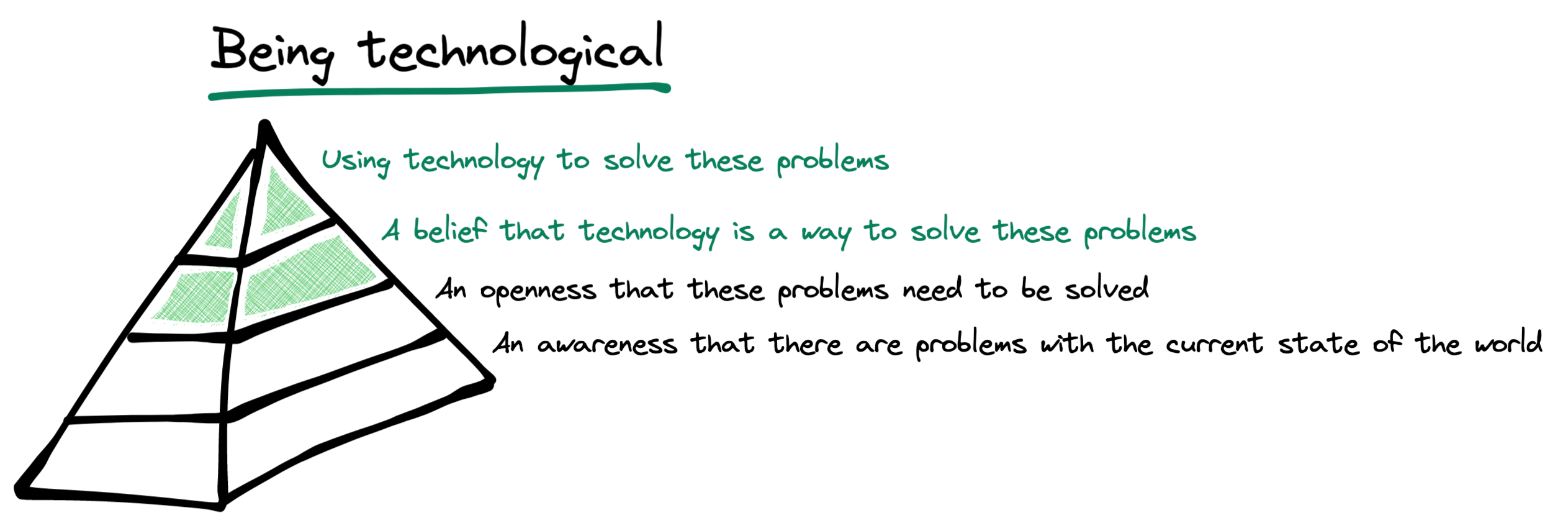YOU'RE OBVIOUSLY IN THE RIGHT PLACE
There’s a difference between being technical and being technological.
Being technical is a knowledge and skill state. The more someone understands a subject, the more expertise they have either to expand their thinking or apply that knowledge.
Being technological is a mindset. At its core, it’s an optimistic belief in progress, which any open-minded person can access. As one ascends the hierarchy of being technological, the details around the what and the how of technology become more important.

A technical person isn’t necessarily technological. Imagine a software engineer who is technically excellent, but doesn’t hold a progressive view that things in the world should be better, that software is one way to create change. To this person, software — a technological medium — isn’t imbued with a deeper purpose around progress. Instead, it’s just a utility to perform actions or a surface area to improve one’s craft.
On the flip side, a person can be technological and not technical. This person may not possess deep specialized knowledge. But they do care to solve problems for people and understand that technology is a way to do that.
Dee Hock, founder of Visa, who laid the groundwork for our current digital payments network system, is an exemplar of a technological spirit. This recent eulogy captures it wonderfully:
He [Hock] thought from first principles and questioned everything, even down to the nature of money itself. He was disappointed in most social institutions, but saw the potential for thriving ‘chaordic’ systems like those he observed in nature. He saw a better way of doing things, and didn’t listen to the folks who said it couldn’t be done.
— David Stearns
When building things or companies that create change, technical people always have a place. After all, who else is going to actualize these things into our physical world?
What’s less taken for granted is how important and valuable technological people are to any technology-first or technology-enabled environment. Some of the most high-impact people I’ve worked with are not that technical while being quite technological, relentlessly pushing for new ways to create value for users and never satisfied with what the status quo is.1
They echo of Hock’s eulogy.
We should be welcoming all technological people — from the highly technical and technological unicorn to the techno-curious trying to cross the chasm — into every place and paradigm with open arms.2
-
Even if it’s a low level, being technological requires a non-zero understanding of technology as the medium to effect change. These coworkers all grokked the technology our company built, and possessed enough basics to reason how software was fundamentally a better way to solve users’ problems. Put it another way, being generally progressive is not sufficient for being technological (progress + technology). ↩
-
The title of this piece is a nod to Virgil Abloh’s 2017 collection, “You’re Obviously in the Wrong Place,” which was originally inspired by this scene in “Pretty Woman.”. It speaks to unnecessary and questionable gatekeeping. Let’s be nicer to those who try and dream. Some of Abloh’s periphery thinking is here. ↩